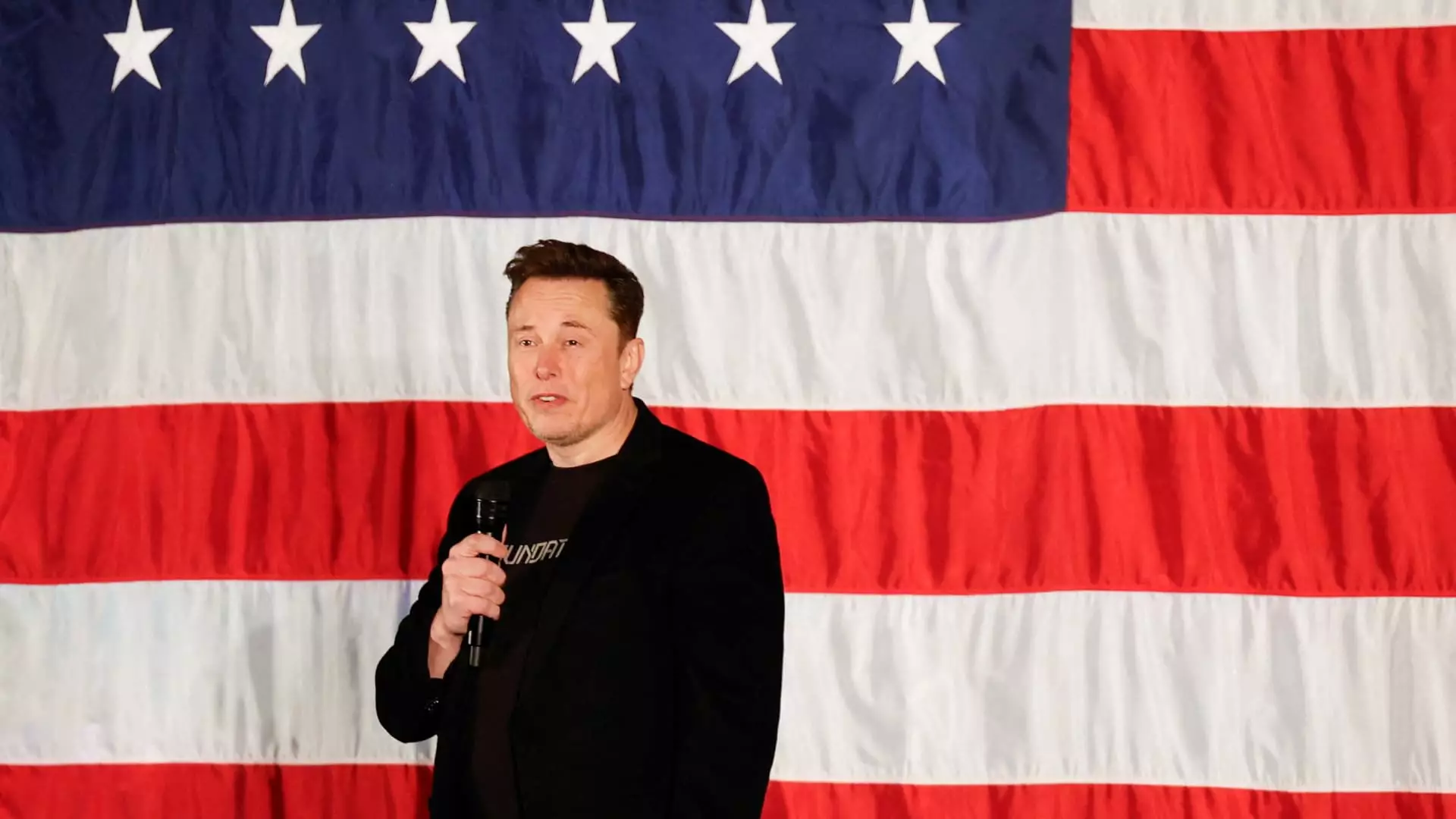Elon Musk, a figure notoriously associated with immense wealth and influence, recently ignited a firestorm of controversy with his political action committee (PAC) offering a staggering $1 million daily giveaway to registered voters in key swing states, including Pennsylvania. This unusual strategy, which claims to support civic engagement through financial incentives, has raised eyebrows across the political spectrum and caught the attention of the legal system.
At the center of the storm is Philadelphia District Attorney Larry Krasner, who swiftly initiated legal action against Musk and his America PAC, accusing them of running what amounts to an illegal lottery. Krasner’s argument hinges on the assertion that the giveaway is not merely a promotional gimmick but a tactic aimed at swaying voters ahead of the impending presidential election, in which candidates Donald Trump and Kamala Harris are vying for the highest office in the land. Krasner’s office has labeled the lottery as a potential violation of state consumer protection laws—an accusation that adds a layer of seriousness to the proceedings.
Moreover, Krasner’s swift legal maneuvering is also a reflection of broader anxieties about the balance of power in electoral politics and the ethics of using wealth to influence democratic processes. Skepticism regarding the motives behind such giveaways is well warranted, as they underscore profound questions about financial equity and the integrity of the electoral process.
In a twist of fate, U.S. District Judge Gerald Pappert returned the case to the Court of Common Pleas just two days after it was shifted to federal court. The ruling reflects not only a legal technicality but also an interpretation of jurisdiction that emphasizes the distinction between state and federal law. Judge Pappert asserted that while discussions of the upcoming presidential election were part of the legal narrative, they did not confer sufficient grounds for federal jurisdiction. Consequently, the judge dismissed Musk’s legal team’s arguments for a federal proceeding, emphasizing that no federal question was invoked by Krasner’s suit.
The ruling is significant, as it catalyzes an urgent response from Krasner’s office to expedite the hearing process within state court. In his statement, Krasner reiterated his stance that Musk’s PAC’s efforts to transition the case to federal court were, in his view, “contrary to the law.” This courtroom drama serves as a litmus test for how effectively and swiftly government apparatus can intervene in politically charged situations to protect the integrity of the electoral process.
As the legal proceedings unfold, public sentiment around Musk’s endeavor remains mixed. Supporters see his actions as a revolutionary engagement strategy that encourages civic participation, while critics label it a misguided attempt to circumvent electoral norms. There’s an underlying apprehension about the implications of wealth on democracy, positioning Musk as a potential puppet master maneuvering the strings of public sentiment with his wealth.
Moreover, the emergency hearing scheduled in the Philadelphia Court of Common Pleas signifies the urgency and gravity with which Krasner’s office is treating this matter. The fact that initial prize winners were drawn from Pennsylvania only heightens the stakes, as local citizens find themselves entangled in a broader narrative about the ethics of wealth and the integrity of elections.
This legal saga encapsulates a critical moment in contemporary electoral politics, one that raises vital questions about equitable representation and the nature of influence wielded by affluent individuals. As the situation develops and the state court prepares to hear Krasner’s emergency request to halt the lottery, the broader implications of Musk’s actions will undoubtedly play out in public discourse. The outcome holds potential ramifications not just for Musk but for the larger framework of electoral integrity, defining how money, power, and politics intertwine in America’s democratic process.


Leave a Reply